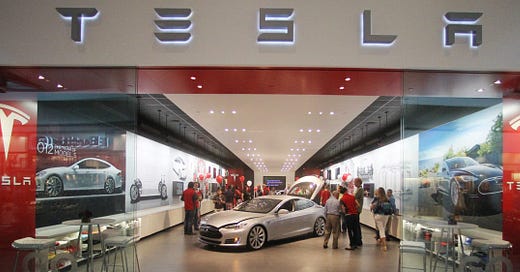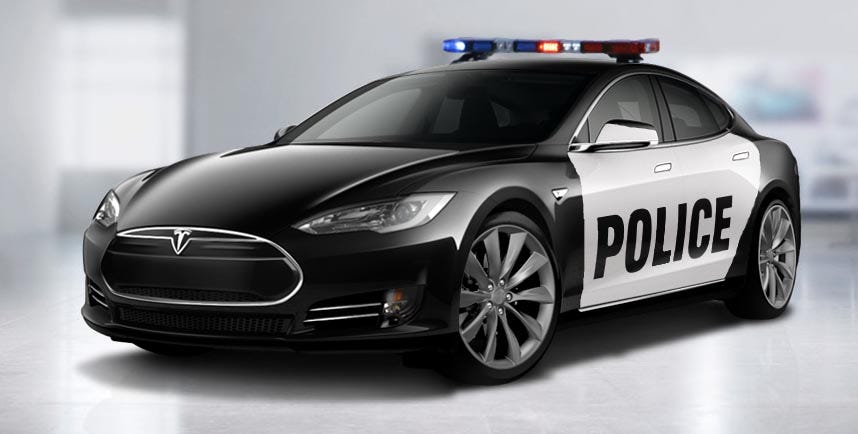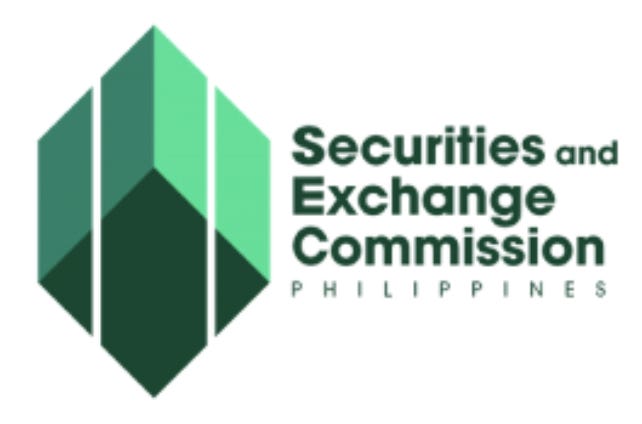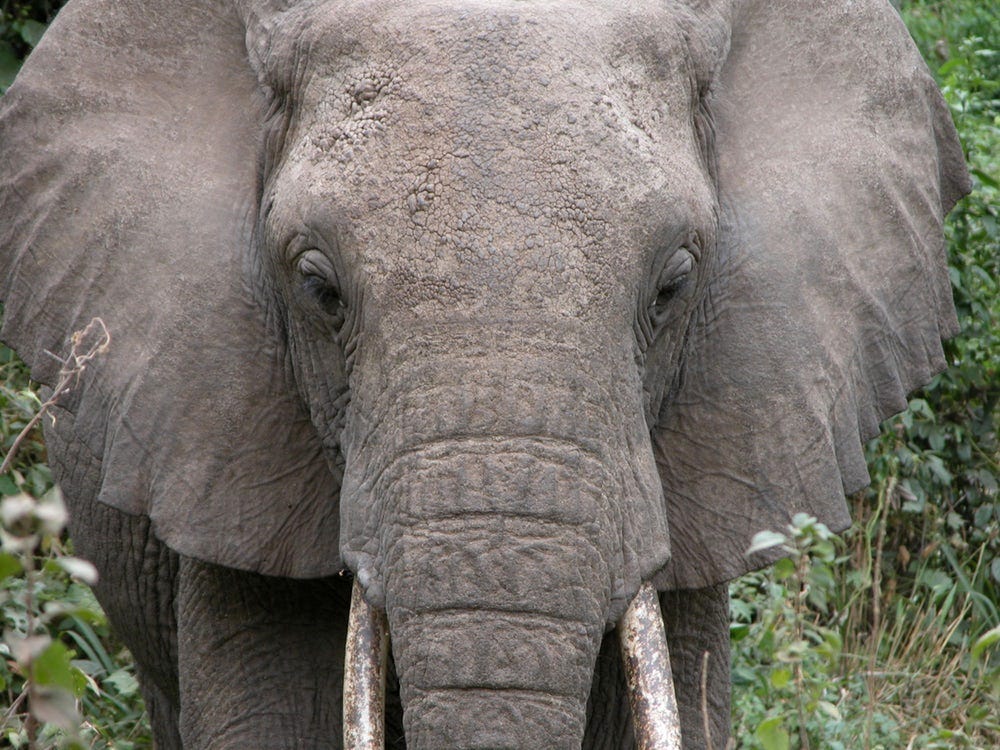Tesla - Truth and Consequences
CEO Elon Musk's Diversions Can't Outpace Overwhelming Bad News That Keeps Coming
Tesla Motors (TSLA US) CEO Elon Musk teased in a tweet late Wednesday night about "news" coming on Thursday, most likely something he hopes will be positive enough to divert attention from a seemingly unending stream of bad news. If so, it may not last.
Tesla's problems aren't going away, they're escalating:
Tesla's brand-new general counsel is leaving after just two months on the job;
Consumer Reports withdrew its recommendation on the flagship Model 3 due to serious quality and reliability concerns--not actually surprising given increasing risks I have tracked with Tesla quality controls curtailed and flawed cars increasingly delivered to customers (see "Musk and Weird Q3 Developments Are Driving Investors to Telsa’s Rivals" and "Tesla – Dave’s Not Here, and Musk Won’t Leave" and "Tesla: Down to the Wire").
The 2018 10-K filing confirms Tesla's operations still are not generating consistently sustainable profits or cash flow unvarnished by substantial boosts from accounting maneuvers and unusual items as seen with the "miracle" third quarter (see "Great Magic Trick Tesla; Now Do it Again")
Which is bad news for first quarter results already foundering with pricing cuts, rising costs, unhappy customers, and escalating demand pressure;
Plus liquidity strain worsened by $920 million in cash due to go out on March 1st to pay off maturing convertible bonds.
Tesla Shanghai Gigafactory construction is underway and yet still not fully funded after at least six months of negotiations with bankers, and thus may also be developing differently versus what Tesla has presented (adding to my previously noted concerns in "Tesla: Shanghai Surprise").
The common theme here is that all these problems were preventable, avoidable, and unnecessary.
That's not going away any time soon--as long as Musk remains in complete control. How long will that be?
You Are Not the Boss of Me
Musk started the latest fiasco last week with a tweet, of course, in which he bragged that Tesla would produce 500,000 cars this year. Yowza.
This far exceeded Tesla's already ambitious guidance, released at the end of January with fourth-quarter results, that production would reach an annualized rate of 500,000 sometime between the fourth quarter of 2019 and the second quarter of 2020.
Musk corrected in a new tweet--four hours later--that he meant the 500,000 production number actually was an annual rate with 10,000/week to be hit at the end of this year—still a boost in guidance. And then he also tightened up guidance for 2019 deliveries to "around 400k" versus the previous outlook for "360-500k."
While the market was rightly skeptical, the SEC was not amused. Musk's problematic public disclosures, particularly by tweet, had been specifically addressed as part of settlement terms struck last October when the SEC convicted him for securities fraud over his bogus "funding secured" take-private scheme last August (see "Tesla Take-Private Plan: Shoot First, Answer Questions Later (If at All)" and "Tesla's Take-Private Plan - Never Mind" and "Tesla Party Today; Hang the Details").
As I noted then, Musk's buyout stunt resulted in the evaporation of $13 billion in equity market value for investors. The SEC's response had been surprisingly quick, saying Musk made “false and misleading public statements and omissions” that generated “significant confusion and disruption in the market for Tesla’s stock and resulting harm to investors."
And yet the SEC's remedy had seemed comparatively tepid, in my view:
Musk will step down as Tesla’s Chairman and be replaced by an independent Chairman.
Musk will be ineligible to be re-elected Chairman for three years;
Tesla will appoint a total of two new independent directors to its board;
Tesla will establish a new committee of independent directors and put in place additional controls and procedures to oversee Musk’s communications;
Musk and Tesla will each pay a separate $20 million penalty. The $40 million in penalties will be distributed to harmed investors under a court-approved process.
Indeed, here is what I suggested then (in Tesla: Musk Fought the Law, the Law Won, So What?) as the most productive way for Tesla to resolve the crisis and start restoring its shredded credibility:
It's critical that Musk and Tesla realize the SEC actually let them off lightly. Criminal investigations continue and those investigators will be paying close attention to how Musk and Tesla proceed. So will shareholders who have filed numerous lawsuits alleging securities fraud.
Tesla's new chairman must be a truly independent, seasoned auto industry veteran who can demonstrate management strength, operating prowess, and help begin to restore the company's shredded credibility.
New directors Tesla is compelled to add must be truly independent, and the company should increase its board to at least 12 directors to ensure demonstrable management oversight.
Tesla's board should create and publish new standards for management oversight, accountability, and public communication.
Tesla must install and retain a broad-based bench of seasoned auto industry veterans who can help Musk lead and help Tesla execute its critical transition into a sustainable carmaker. Better-healed rivals are bringing strong competition for 2019.
Tesla needs to replace and retain top-flight accounting and finance execs to ensure there are no worrisome financial irregularities. If there are problems, get them fixed and install appropriate compliance and controls before the year closes for audited financial statements. Too many high-level finance folks leaving too frequently have raised serious concerns. Getting seasoned, credible management in place early can head off problems and damaging fallout later. Bolstering its finance team also can help ease growing concerns from Tesla's wary suppliers, creditors, bondholders, and investors that the company can appropriately manage its troubling liquidity pressure and the potential need for additional funding while it navigates at least three more difficult quarters before the company becomes convincingly self-sustaining.
Musk must tow the line--his vision and passion are needed and desired, not his frat boy antics which have severely damaged Tesla and its prospects.
Most of this wasn't done. Whatever new compliance standards Tesla implemented ring hollow now as it fails miserably to comply with the core objective of SEC's remedy: to restrain Musk's reckless management behavior and mitigate its resulting damage to Tesla's stakeholders.
As I noted in "Tesla: Down to the Wire":
Investors can't reasonably believe Musk will be reined in or even struck with a pang of conscious over any of his actions, especially now that he has hand-picked his successor [Robyn Denholm] as Chairman, a Tesla director who long has joined the board in rubber-stamping his every move for years.
This included his actions which the SEC labeled as securities fraud related to his buyout stunt. This is not likely to change with the addition of Kathleen Wilson-Thompson and Larry Ellison as two new "independent" directors also added this week to satisfy the SEC's mandate for increased board oversight of Musk.
Both were notable cheerleaders for another petulant and unstoppable CEO: Elizabeth Holmes. She and her company Theranos conducted a stunning multi-year, multi-million dollar fraud which could eventually land her in jail. Mr. Ellison actually was fined $100 million by the SEC for insider trading when he was CEO of Oracle and sold $900 million in stock just before the company reported a disappointing quarter.
Little has changed as a result.
Still on the 11-member board, including Chairman Denholm and Musk, are Musk’s brother, Kimbal, and concurrent SpaceX directors Antonio Gracias and Steve Jurvetson (the later is mired in allegations of misconduct related to his venture capital firm) and Ira Ehrenpreis, a SpaceX investor. Brad W. Buss was the CFO of struggling SolarCity, another Musk-related company acquired by Tesla in 2016.
And of course, Musk refuses to be restrained. After first walking away in disgust when the SEC deal was struck because he couldn't later say he did nothing wrong, he then slammed the SEC immediately after the agreement was finalized--but before final court approval--with a nasty tweet in which he called it the "Shortseller Enrichment Commission."
He later told CBS 60 Minutes Tesla's board is not previewing his tweets, as required, nor does he seem to be recognizing the authority of any supervision, adding also "I want to be clear. I do not respect the SEC. I do not respect them."
They noticed.
The SEC went to court on Monday to request that Musk be held in contempt for his chaotic tweets last week about Tesla's 2019 production numbers.
The SEC complained that Musk is failing to adhere to compliance oversight requirements mandated by his October settlement after confirming with the company that what Musk bragged about on national television to 60 Minutes was true.
We also noticed last Wednesday that Tesla's latest newly minted general counsel Dane Butswinkas is suddenly leaving, as announced the day after Musk's latest calamitous tweet, reportedly due to a "poor cultural fit"--a malady commonly reported in similar form among the roughly 50 senior Tesla executives who have left over the past year.
Mr. Butswinkas would logically be at least partly responsible for oversight of Musk's problematic management behavior and public disclosures, which already have resulted in government investigations and numerous shareholder lawsuits that may cost Tesla as much as a billion dollars in legal fees and settlements.
So it makes sense for him to be uncomfortable in a situation where he cannot be effective.
The same might also apply to Tesla's feckless board, rendered effectively impotent by Musk's supermajority voting power as the largest and most influential investor.
This doesn't diminish their culpable personal liability for the damage Musk causes, and that risk appears to be increasing--perhaps by enough that they have finally begun to exert pressure on Musk.
If so, this plus the increased regulatory and judicial scrutiny could finally trigger at least some of the management changes the SEC had pursued.
Musk would really hate that.
Elon Tusk
When the SEC forced Musk to step down as Tesla Chairman as of October 29, 2018, he told the world he didn't care, tweeting this:
Deleted my Tesla titles last week to see what would happen. I’m now the Nothing of Tesla. Seems fine so far. 3:43 PM - 29 Oct 2018
And this:
Worth it
9:38 PM - 26 Oct 2018
Except he did care. And he didn't stop as acting or even calling himself CEO, as shown in the S-4 filing for a $10 million stock purchase Musk filed on October 29, 2018, when he still titled himself CEO. He also seemed to despise the idea of relinquishing control, or even the appearance of that happening. Musk tweeted in December after the 60 Minutes interview:
“Chairman” is an honorific, not executive role, which means it’s not needed to run Tesla. Will retire that title at Tesla in 3 years. 60 Mins edited out end of my sentence, where I said I could do whatever I want. They cut “provided I have the support of shareholders”.
and, even more telling:
“I am the largest shareholder in the company. And I can just call for a shareholder vote and get anything done that I want.”
Now Musk faces yet another threat to his power from the SEC, which could solicit the court to rework or even revoke the October settlement and possibly even compel him to step down as CEO (though I doubt that will happen).
He's not having it, as he tweeted after the SEC's action in court on Monday:
Exactly. This has now happened several times. Something is broken with SEC oversight.
4:25 AM - 26 Feb 2019
The thing is, the SEC is right. Musk has not sincerely complied with the settlement terms, nor does he seem to believe he should. That's a continuing problem for all of Tesla's stakeholders. The question is, what is he going to do next?
Musk has an unfortunate track record of turning a mess into a bigger mess when he gets desperate and/or angry.
I noted in Tesla: Shanghai Surprise" that Musk is much happier running his privately held companies, including Space Exploration Technologies Corp. (SpaceX), Neuralink, and The Boring Co. A key attraction he enjoys is his flexibility to embrace his "controversial practice of spreading overlapping assets across his disparate technology firms," a handy strategy for juggling his struggling companies.
Also obvious, as I noted, is how much “Musk despises the scrutiny, the accountability, and the criticism that comes with running Tesla as a publicly traded company.”
I suggested Musk might prefer to escape the escalating public and regulatory scrutiny of Tesla via carving out Tesla Shanghai Gigafactory as an unrestricted subsidiary of Tesla, parent company, if not ultimately spun off as an independent company later much like Musk launched The Boring Company from SpaceX. Cash and resources from Tesla parent can flow to Tesla Shanghai until it is established, where operations, assets, liabilities, and equity in Tesla Shanghai can remain obscured and under Musk's control serving the largest and fastest growing electric car market in the world.
Musk has even been offered a permanent residency in Shanghai by Premier Li Keqiang himself, which never hurts as a backup plan.
Tesla has remained curiously oblique about Tesla Shanghai. We do know that the Tesla Shanghai Gigafactory property lease was not purchased in Tesla's name. Tesla Shanghai also not broken out in the 2018 10-K as a named Tesla asset and/or liability, though there is a new Tesla subsidiary listed among those noted at the end of the report: Tesla Shanghai Co., Ltd.
So I wouldn't be surprised if Musk increasingly involved himself with Tesla Shanghai, especially if he is compelled to become less (overtly) in control of Tesla US, say, as a consequence of his pervasively destructive actions.
And, to repeat my concerns for investors, as noted in my last report:
This strategy theoretically allows Musk to cordon off ownership, profits, cash flow, and assets from claims by Tesla's US lenders and investors. What's made in China mostly stays in China--a scenario no doubt also preferred by China, which is facilitating his plans.
Another critical and likely risk of such a venture to Tesla--and Tesla investors--aside from not reaping significant proportional benefit from Tesla Shanghai, is that Unrestrained Musk tends to take even greater risks.
This increases odds that he stumbles with Tesla Shanghai as he did with Tesla, making costly mistakes that delay progress, increase expenses, and extend indefinitely its potential reliance on cash and resources from Tesla--and no one can or will stop him.
In the meantime, Thursday's news may be about Tesla Shanghai
I don't expect Musk to do anything overly aggressive or combative until Tesla Shanghai Gigafactory is comfortably funded and well underway. That could happen any day now.
When Musk teased about "news" on Thursday, he also changed his twitter handle to "Elon Tusk." Tusk could signal "elephant," a word which also symbolizes "things to come" in Chinese.
Example good news could be Tesla's announcement of Tesla Shanghai's long overdue financing deal, along with terms and investors. Investors have been increasingly concerned since, as I noted in January, such financing is typically done before construction starts--not months after the project is underway.
In the meantime, Tesla is initially funding the purported $2-5 billion project with at least $500 million from an already starved capex budget. As a result, local reports are surfacing that Tesla is actually building an assembly facility for now rather than a full-blown production plant as presented, with significant parts still produced in the US and shipped to China--a much more costly process than advertised.
This comes just as Tesla also is facing increasing pressure as rising cash consumed in operations in a likely foundering first quarter drains liquidity already strained with the $920 million cash pay-off of convertible bonds due March 1st. The report as soon as Friday of potentially weak February US sales won't help the mood much either.
Maintain “Underperform” on TSLA 5.3% Senior Notes due 2025, up a couple of points over the past month at 88.7 (7.5% ytw; 507 bps) on the hope of improving credit quality following the retirement of the March 1st notes. That’s a meager 95 bps per turn of estimated leverage, more likely little improved in 2019 on potentially increased borrowing to offset cash shortfalls—hardly adequate compensation for such a volatile issuer. Given Tesla's persistent uncertainty and escalating risks we could see 3-5 points additional downside from here.
Contact Us:
Disclaimer
This publication is prepared by Bond Angle LLC and is distributed solely to authorized recipients and clients of Bond Angle for their general use. In addition:
I/We have no position(s) in any of the securities referenced in this publication.
Views expressed in this publication accurately reflects my/our personal opinion(s) about the referenced securities and issuers and/or other subject matter as appropriate.
This publication does not contain and is not based on any non-public, material information.
To the best of my/our knowledge, the views expressed in this publication comply with applicable law in the country from which it is posted.
I/We have not been commissioned to write this publication or hold any specific opinion on the securities referenced therein.
Bond Angle does not do business with companies covered in its
publications, and nothing in this publication should be construed as a solicitation to buy or sell any security or product.Bond Angle accepts no liability whatsoever for any direct, indirect, consequential or other loss arising from any use of this publication and/or further communication in relation to this document.







